The Signs of Spring
 Saturday, March 15, 2014 at 1:30PM
Saturday, March 15, 2014 at 1:30PM I walk outside and breathe it in. Spring! Composers through the ages have written sonnets, poems, and ballads describing their feelings about the season. A friend recently sent me this image of someone's emotional expression. You may have seen a similar sign already, but if not, I think you might enjoy it; and I have to say that I feel the same!
You may have seen a similar sign already, but if not, I think you might enjoy it; and I have to say that I feel the same!
Despite continuing cold nights, the days are warmer and spring is rolling in with new flowers appearing daily. Each morning I can't wait to get out there to see what is happening in the garden. I especially like to examine the little blooms, the ones that make you pause and take a closer look.
Amelanchier, also called serviceberry, juneberry, and a number of other names, is in full bloom. The berries that follow the flowers are delicious, but I may never get more than a handful. I planted this tree for the birds, especially the bluebirds, who love them.
The berries that follow the flowers are delicious, but I may never get more than a handful. I planted this tree for the birds, especially the bluebirds, who love them.
From a distance, Chaenomeles, or flowering quince, packs a powerful punch, but clusters of the small blooms are equally amazing up close.
Masses of Phlox subulata is a common spring-time sight, but the individual little flowers are not common at all: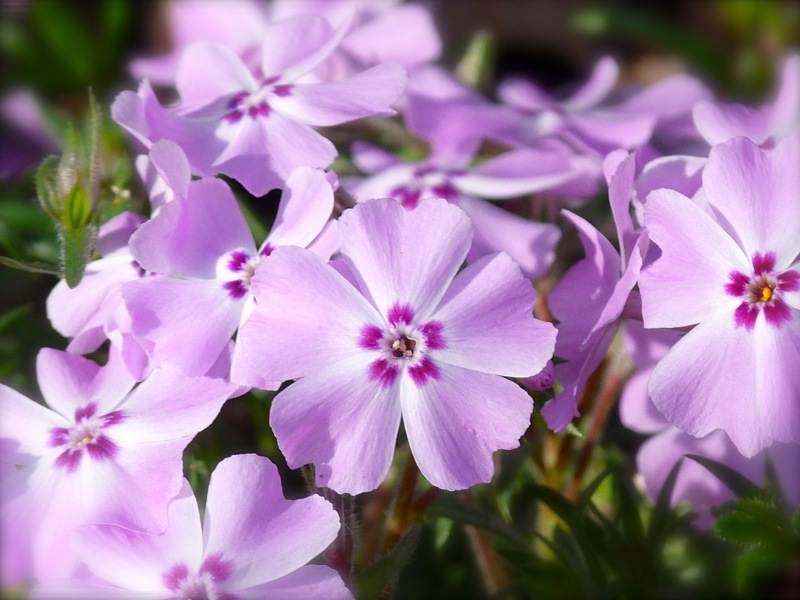
Hepatica nobilis, with the unfortunate common name of liverwort, is just emerging in the woodland garden.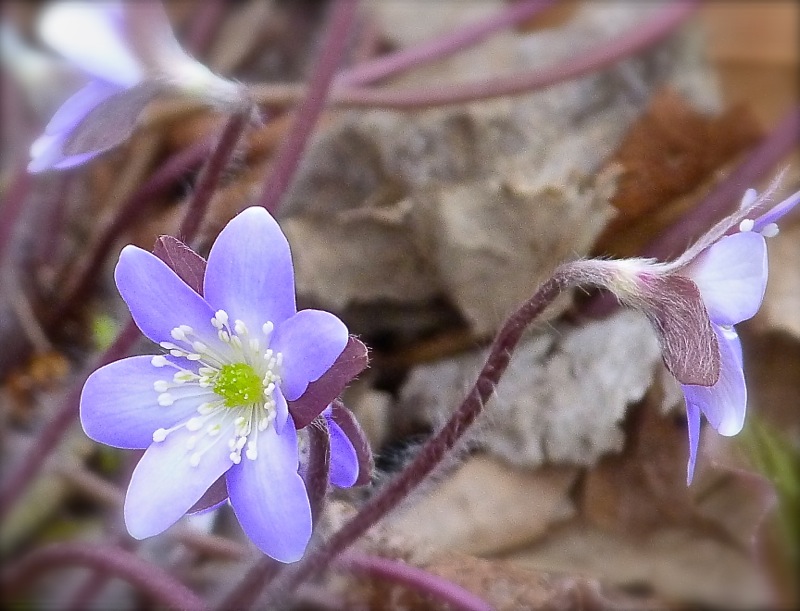 This plant is taking its time becoming well-established, but I love the little blooms.
This plant is taking its time becoming well-established, but I love the little blooms.
Below left, Leucojum estivum, or summer snowflake, has dainty white bells that must be appreciated up close, and below right is the funky Corylopsis sinensis, a tall shrub known as winter hazel. 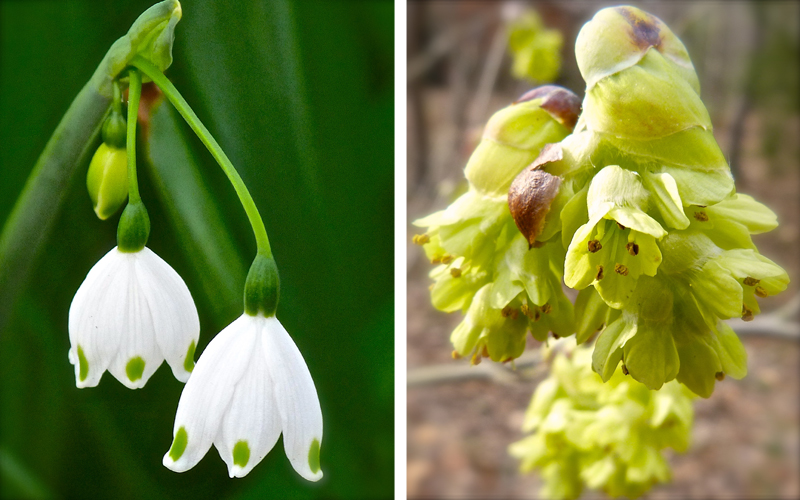
Some other blooms are larger and also deserve attention as I stroll through the garden.Clockwise, from above left: Edgewothia chrysantha; Camellia from a shrub that is over 30 years old; An unusual daffodil, planted about sixty years ago by the original owner of our house; Magnolia 'Jane'
Below left is a bird house that has been a favorite of bluebirds every year. A couple have been busy there recently, and I hoped to get a photo of one, but Mr. and Mrs. Bluebird would not cooperate! The yellow in the background is Forsythia, also called yellow bell. Below right, A stray forsythia branch is blooming in front of a purple pot. The pot contains Carex oshimensis 'Everillo', a brightly colored sedge that is my new favorite plant of the season.
Take a look at a woodland scene that I have featured through every season, because it may soon be changing! 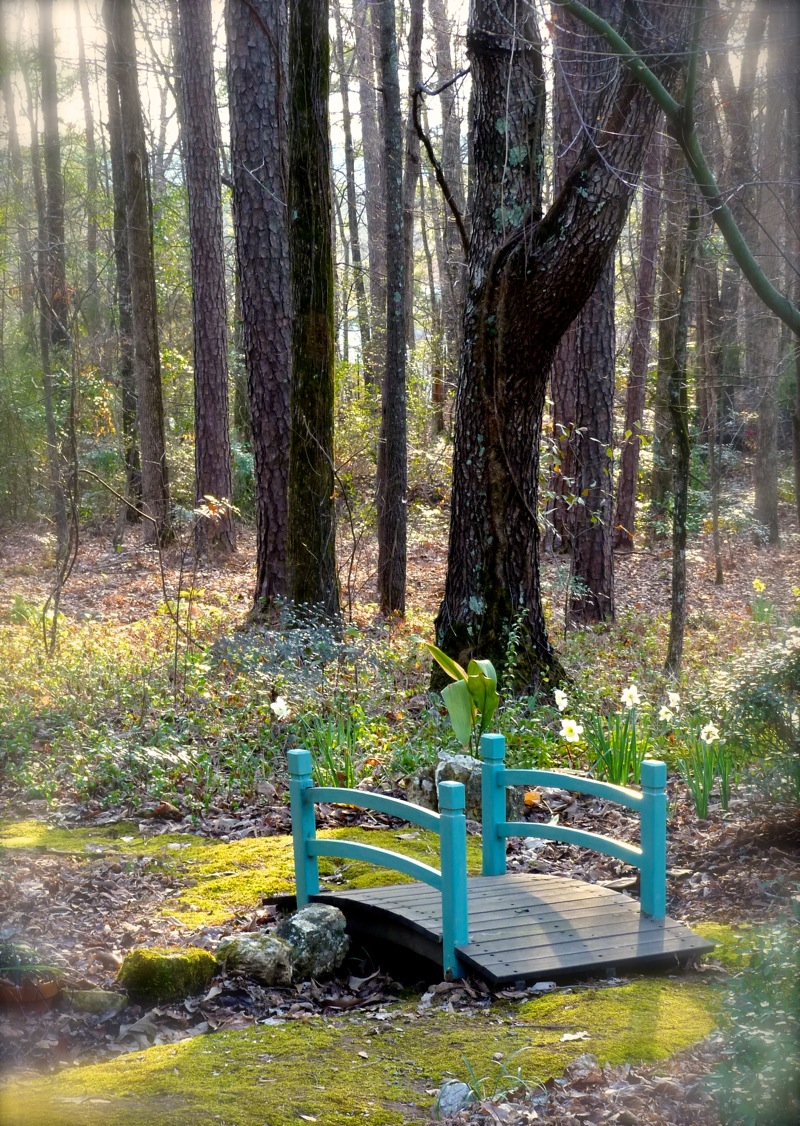 My beloved blue bridge has termites! Lou says there is little to be done for it. By next year I will have to replace it. When that happens, I will find a small metal bridge and I doubt it will look the same. But be sure, I will paint the railings turquoise blue!
My beloved blue bridge has termites! Lou says there is little to be done for it. By next year I will have to replace it. When that happens, I will find a small metal bridge and I doubt it will look the same. But be sure, I will paint the railings turquoise blue!
Finally, as a perfect spring day in the garden comes to a close, I catch the sun setting behind the trees.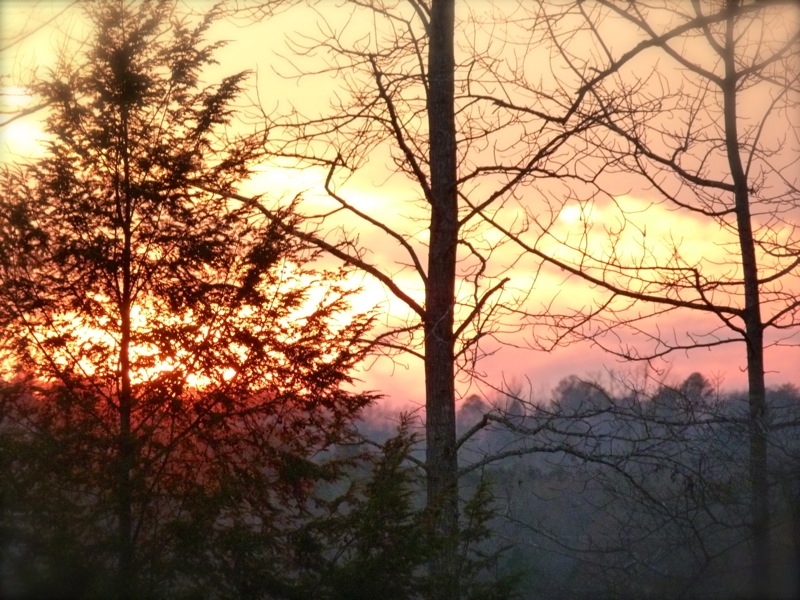
May the joy of discovery and the fresh hope of spring always be in your hearts. Deb
 Permalink
Permalink